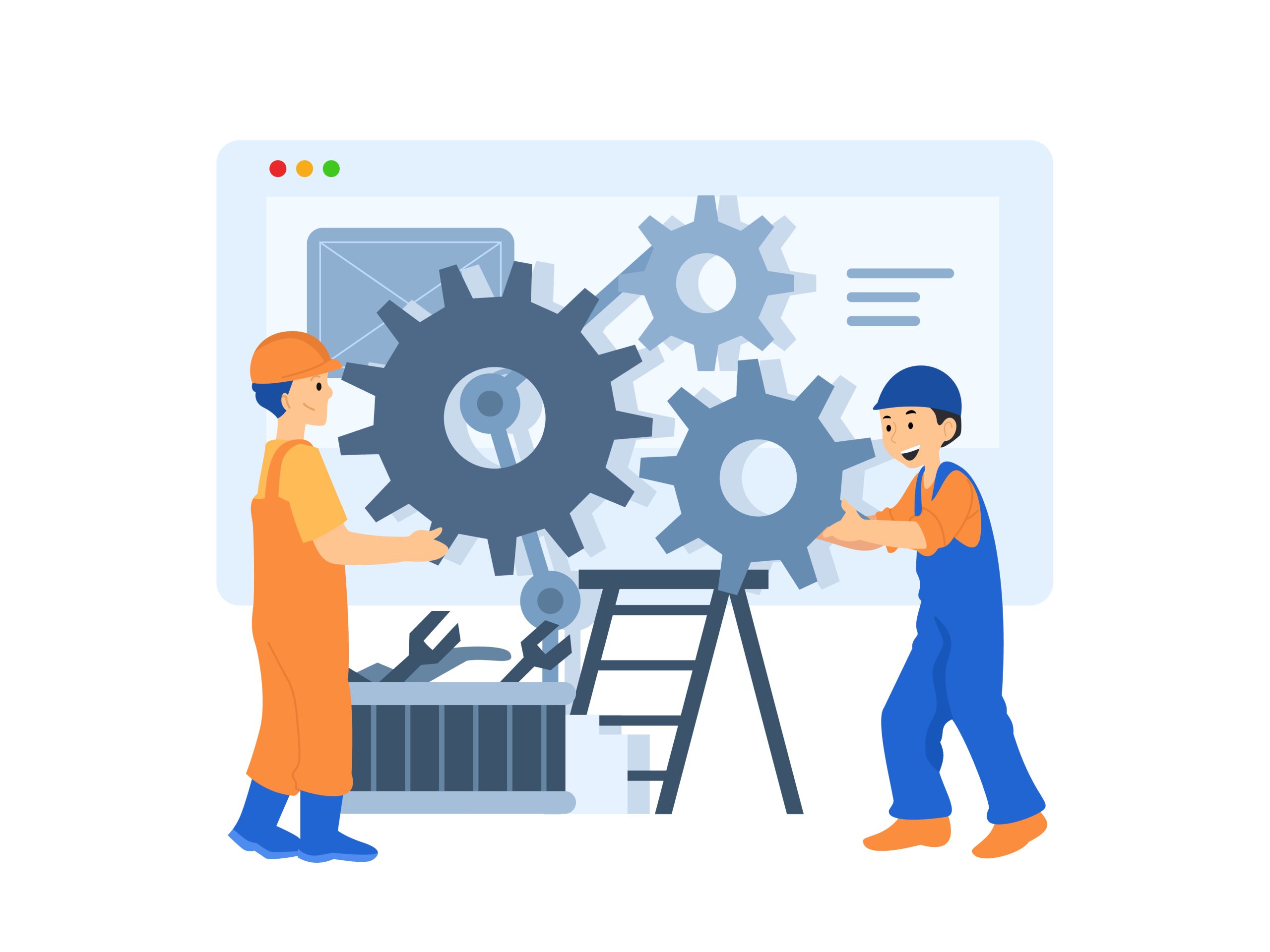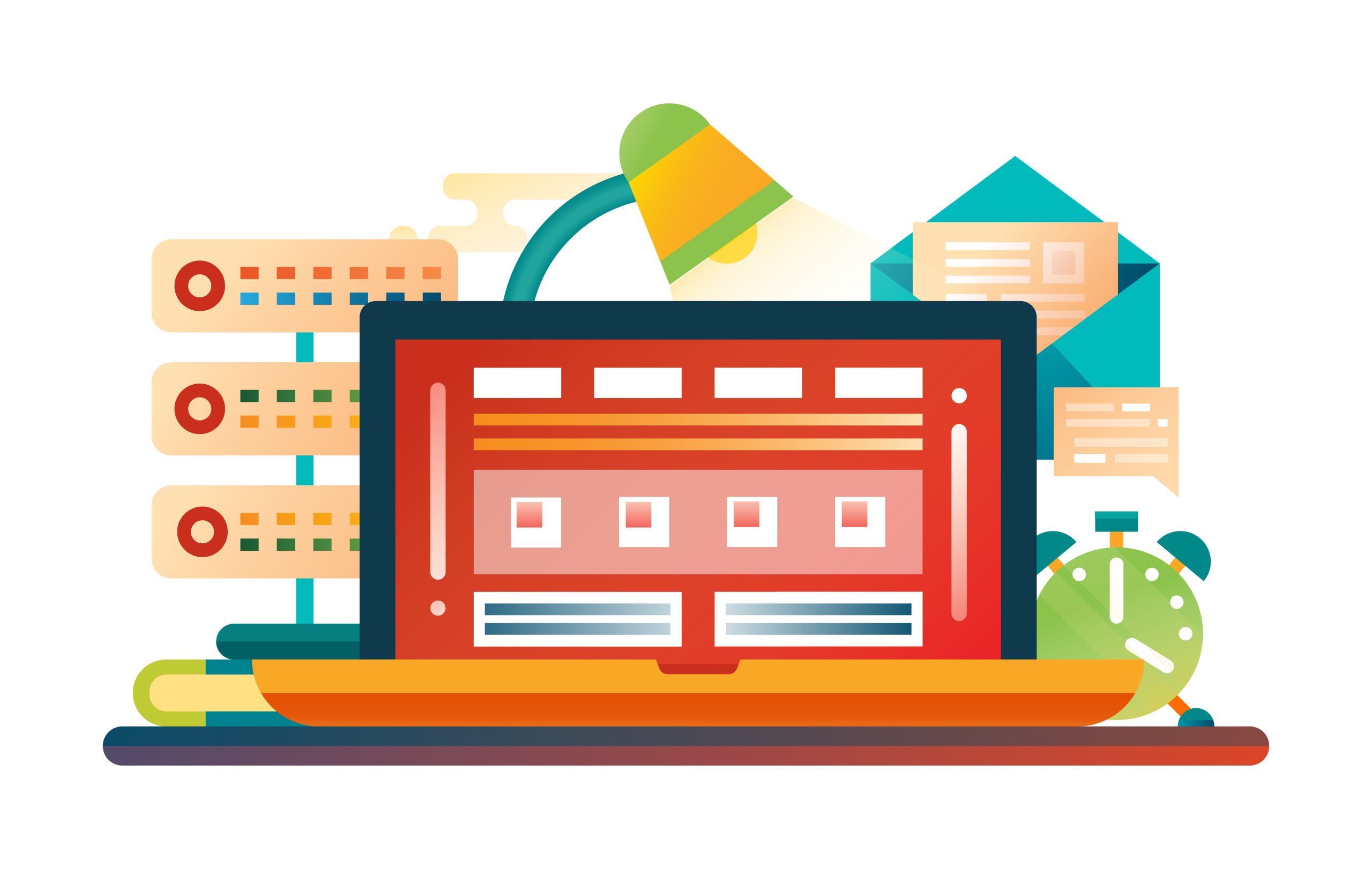The Importance of Website Maintenance in 2024 and Why Businesses Need It For Long-Term Success: Ensuring Optimal Performance and User Experience
 Justin Young
Justin Young
- broken links repair
- content updates
- cyber threats
- Data backup strategies
- data loss prevention techniques
- disaster recovery planning
- error monitoring tools
- fresh content creation
- growth
- hacker attacks
- loading speed improvement
- long-term success
- malware protection
- navigation improvement
- prioritize
- SEO optimization
- technical issue resolution
- user engagement metrics
- user experience
- user experience enhancement
- Website Maintenance
- website management
- website performance
- website performance optimization
- website security
- website speed testing
- website vulnerabilities

Understanding the Significance of Website Maintenance
Website maintenance, website management, website performance, user experience
Maintaining a website requires consistent monitoring, updating, and troubleshooting to ensure optimal performance. This involves conducting routine checks for broken links, optimizing loading speed, fixing bugs or errors, and ensuring compatibility across various devices and browsers.
The significance of website maintenance cannot be overstated. A well-maintained website enhances user experience and contributes to better search engine rankings. It demonstrates professionalism, reliability, and credibility to visitors, fostering increased customer trust and conversions.
Furthermore, implementing regular security measures and updates is critical in safeguarding your website against potential cyber threats or hacking attempts. You can minimize risks and protect sensitive data by remaining vigilant with maintenance practices.
In summary, website maintenance is an investment in the success of your online presence. Ensuring your website remains functional, user-friendly, secure, and up-to-date with the latest industry standards is guaranteed. By prioritizing these aspects of website management, you can provide a seamless experience for your visitors while achieving your business objectives.
1. Improving Website Security and Guarding Against Cyber Threats
Website security, cyber threats, website vulnerabilities, hacker attacks, malware protection
Website security involves a series of measures and technologies designed to prevent unauthorized access, data breaches, and malware attacks. It entails implementing robust security protocols to identify and address potential website infrastructure weaknesses.
As cyber threats evolve, hackers use more advanced techniques to exploit vulnerabilities. These threats can range from DDoS attacks that overwhelm a website's servers to malware injections that compromise user data.
Businesses can enhance their website security to mitigate the risks associated with these cyber threats. This can be achieved through robust authentication protocols, regular software and plugin updates, encryption of sensitive data transmissions, and routine vulnerability assessments.
Moreover, investing in reliable malware protection solutions is essential in detecting and removing malicious code that may compromise a website's integrity. These tools help to identify potential malware infections before they cause significant damage or compromise user trust.
Prioritizing website security is crucial since it protects businesses from financial losses and safeguards their reputation and customer trust. By staying alert to cyber threats and implementing robust security measures, companies can create a secure online environment for themselves and their users.
2. Improving Website Performance and Loading Speed for Better User Experience
website performance optimization, loading speed improvement, user experience enhancement, website speed testing
It's crucial to optimize your website's performance to enhance its loading speed and keep visitors engaged with your Content. Techniques such as image optimization, browser caching, and CSS and JavaScript file minification can significantly reduce page load times and improve user experience.
How can you be sure your optimization efforts are paying off? This is where website speed testing comes in. Regularly testing your website speed using tools like Google PageSpeed Insights or GTmetrix can help you identify areas for improvement and make necessary adjustments to continue enhancing your user experience.
A fast-loading website satisfies visitors and contributes to higher conversion rates. It reduces bounce rates, increases time spent on your website, and improves overall customer satisfaction. In today's competitive online world, investing in website performance optimization is necessary for businesses looking to stay ahead.
Prioritizing loading speed improvement and implementing effective website performance optimization strategies can create a positive user experience that keeps visitors returning for more. So don't underestimate the power of a fast-loading website - it's an investment that pays off in more ways than one.
3. Keeping Content Fresh and Relevant to Engage Users and Boost SEO Rankings
content updates, fresh content creation, SEO optimization, user engagement metrics
To engage users and boost SEO rankings, businesses must keep their Content fresh and relevant. Given that search engine algorithms are constantly evolving, regular content updates and optimization for SEO are necessary.
Maintaining user interest is dependent on regular content updates. Businesses can keep their audience engaged and increase Content sharing by providing new insights, information, and perspectives, building a loyal audience base. Frequently updating website content boosts search engine rankings and organic traffic. However, to maximize the impact of content updates on SEO rankings, it is essential to optimize refreshed Content using relevant keywords, meta tags, and other on-page SEO techniques.
Aligning updated Content with user intent and strategically incorporating targeted keywords is crucial for improving visibility in search engine results. Examining user engagement metrics, such as the amount of time spent on a page, bounce rate, social shares, and comments, can offer valuable insights into the effectiveness of updated Content. This analysis can prove helpful in determining whether our Content resonates with our audience and, if not, how we can improve it. The information gained can be used to improve the quality of the Content and increase engagement with users. By analyzing these metrics, businesses can understand what resonates with their audience and make informed decisions about future content updates.
4. Fixing Broken Links and Resolving Technical Issues for Seamless Navigation
broken links repair, technical issue resolution, navigation improvement, error monitoring tools
Fortunately, website owners can access practical solutions to tackle their challenges. By utilizing tools that can repair broken links and resolve technical issues, owners can proactively identify and fix any problems that may arise. These tools not only monitor websites for errors but also provide actionable insights on how to resolve them promptly.
Ensuring that all internal and external links on a website function correctly is crucial, which can be achieved by fixing broken links. This improves user experience and enhances search engine optimization efforts by reducing bounce rates and enhancing overall site credibility.
However, resolving technical issues goes beyond just fixing broken links. It involves identifying and rectifying any underlying problems impacting website performance, such as slow-loading pages or compatibility issues across different devices or browsers. By addressing these issues promptly, website owners can provide visitors with a seamless browsing experience across all platforms.
In this process, error monitoring tools play a vital role by continuously scanning websites for potential mistakes or glitches. They provide real-time alerts whenever an issue arises, allowing web admins to take immediate action and prevent any negative impact on user experience.
5. Regular Backups to Safeguard Data in Case of Unexpected Disruptions or Losses
Data backup strategies, disaster recovery planning, data loss prevention techniques
The smooth functioning of organizations heavily relies on data, including customer information and financial records. However, unexpected disruptions or losses can strike at any time, putting this valuable data at risk. Regular backups are crucial to safeguard data and ensure business continuity.
In disaster recovery planning, data backup strategies play a critical role. Storing duplicate copies of data in separate locations can minimize the impact of disasters or cyber-attacks. Regular backups are an essential measure to protect your systems and quickly retrieve lost data.
To prevent data loss effectively, it is essential to employ various techniques and best practices. This includes selecting reliable backup solutions with automated scheduling and incremental backups to minimize downtime and optimize storage space usage. Additionally, implementing encryption measures ensures that your backed-up data remains secure from unauthorized access.
Regular backups protect against accidental deletion or corruption and enable quick recovery from ransomware attacks or system failures. They provide peace of mind, knowing your organization has a plan to restore operations swiftly, even in the worst-case scenario.
Conclusion: Prioritize Website Maintenance to Ensure Long-Term Success and Growth
Website maintenance, long-term success growth prioritize
Maintaining and updating your website regularly is critical to its security, functionality, and user-friendliness. It guarantees that your visitors have a positive experience while navigating your site, leading to higher engagement, conversions, and customer satisfaction.
Moreover, dedicating time and resources to website upkeep keeps you ahead of technological advancements and industry trends. Updating your website regularly, optimizing for search engines, and monitoring analytics data can help you make informed decisions that drive growth.
A well-maintained website also instills confidence and credibility in your brand. Having an outdated website with broken links can negatively impact the credibility of a business. It's essential to ensure that all information on the website is up-to-date and all links are functioning correctly to maintain a positive impression on potential customers. In contrast, an updated and polished website demonstrates professionalism and a dedication to providing an exceptional user experience.
To ensure lasting success, it's vital to prioritize ongoing website maintenance. By doing so, you're positioning yourself for continued growth by maximizing user satisfaction, remaining relevant in a constantly changing market, and building trust with your audience. Don't underestimate the impact of regular updates - they're essential for unlocking the full potential of your online presence.
Related Posts
 How Often Should You Do Website Maintenance?
How Often Should You Do Website Maintenance?
The Importance of Regular Website Maintenance Website maintenance, website upkeep, website management, website performance Managing a website involves multiple tasks, including updating content, design elements, and functionality. To prevent potential vulnerabilities, it’s crucial to keep your site up-to-date with the latest technologies, security patches, and bug fixes. Monitoring critical website performance metrics includes page load […]
 Best Website Maintenance Tools for your Business in 2024
Best Website Maintenance Tools for your Business in 2024
Discover the best website maintenance tools to keep your online presence running smoothly this year website maintenance, website management, website performance, website upkeep Best Website Maintenance Tools for your website is crucial to ensure a positive user experience. A well-maintained website enables visitors to navigate quickly, find relevant information, and interact positively with your brand. […]
 How Much Does Website Maintenance Cost?
How Much Does Website Maintenance Cost?
Know website maintenance costs upfront to avoid surprises and keep your website running smoothly.
Did you know that users take only 50 milliseconds (0.05 seconds!) to form an opinion about your website? Within this short period, they decide whether or not they want to stay. Keeping your website up-to-date is a critical way to show its quality.
The Cost of maintaining a website pays off in the end because 47% of customers will visit a company’s website before deciding whether or not to make a purchase. Therefore, it is essential to ensure everything looks fresh and runs smoothly!
 10 Essential Questions to Ask When Choosing the Best Web Hosting Services
10 Essential Questions to Ask When Choosing the Best Web Hosting Services
When selecting the optimal web hosting services, asking these ten essential questions is crucial. web hosting services, importance of web hosting, choosing the right web hosting provider, website performance Choosing the right web hosting provider is crucial for ensuring that your website is accessible to users at all times. They provide the necessary infrastructure and […]
 How Does Website Maintenance Increase Conversion Rates Over by 25%
How Does Website Maintenance Increase Conversion Rates Over by 25%
Does Website Maintenance Increase Conversion Rates: Boosting Conversion Rates: The Impact of Regular Website Maintenance on Your Business Introduction: Understanding the Importance of Website Maintenance for Higher Conversion Rates Website maintenance, website optimization, website performance, conversion rate improvement Does Website Maintenance Increase Conversion Rates: Website maintenance involves various tasks, including updating content, monitoring website performance, […]